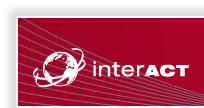Internationalization makes universities face linguistic challenges: Do they have to provide their lectures in English or do all foreign students have to learn German? An alternative solution has been developed by the Institute of Anthropomatics of Karlsruhe Institute of Technology (KIT): The first computer-based automatic simultaneous translation service at a university worldwide. On June 11, Professor Alex Waibel and his team presented the system on KIT Campus South.
“The automatic lecture translator is the result of long years of excellent research that will be of benefit to teaching. Hopefully, generations of students worldwide will profit from it soon,” said Theresia Bauer, Minister of Science, Research, and the Arts of the state of Baden-Württemberg during the presentation of the translator. “The translator marks a major step when considering the increasing heterogeneity of our students that is to be managed by us as a cosmopolitan place of knowledge.”
“At KIT, we have about 16% of foreign students. At universities in the USA, this share amounts to about 50%,” says KIT President Professor Horst Hippler. “In international competition for the best scientists, we are still behind.” The lecture translator is aimed at helping attract talented students from abroad. It is part of the efforts undertaken by KIT to overcome language barriers. ”The lecture translator automatically records the lecture, transcribes the text into a written version, and translates it into English in real time,” says Professor Alex Waibel. “Students can then follow the lecture via their PC or mobile phone.” The translator also translates transparencies presented during the lecture. Past lectures on the PC can be found and accessed via search terms in the written versions.
The lecture translator combines the technologies of automatic speech recognition and statistic machine translation in an integrated system. Auxiliary components structure the text, deal with punctuation, treat German compound words, record the lecture, and display the translation result. The components are combined by an innovative service infrastructure.
“The translation is not always perfect,” says Waibel, “but it is part of the language tools, by means of which students are enabled to better follow the lectures in spite of language barriers.“ Presently, the lecture translator is being tested during lectures of the Departments of Informatics and Mechanical Engineering at KIT. In the future, it is planned to offer several languages for selection and to support a larger number of lectures. Not only foreign students, but also hearing-impaired persons will profit.
Follow the presentation via the live-stream!
Interview with Prof. Alex Waibel
Find out what the press said about our system!
Research-History at ISL, 20 years of research in the field of speech:
In 1991, ISL introduced JANUS, the first speech translation system in Europe and the US and demonstrated the feasibility of speaker-independent, continuous speech translation. In 1992, the ISL founded the international Consortium for Speech Translation Advanced Research (C-STAR), the earliest team effort on speech translation, together with partners in the US and Japan. C-STAR continues to host and manage the annual IWSLT workshops and evaluations. In 1993, it presented the first spontaneous speech translation system, and in 2005 the first real-time simultaneous speech translation system for lectures. ISL served as coordinating or founding partner in a number of European key speech translation programs including Verbmobil, Nespole, TC-STAR and the French-German collaborative R&D program ‘Quaero’. ISL is also leading efforts on multimodal interfaces for the DFG Sonderforschungsbereich ‘Humanoid Robots’, and served as the general scientific coordinator of CHIL, the largest Integrating Project on Multimodal Interfaces during FP-6. On February 01, 2012 the Integrated Project, EU-BRIDGE, started - funded by the European Commission under FP7 and coordinated by ISL. Furthermore ISL is partner in the French-German INTERREG-project EVEIL-3D (start Jan. 01, 2012).

